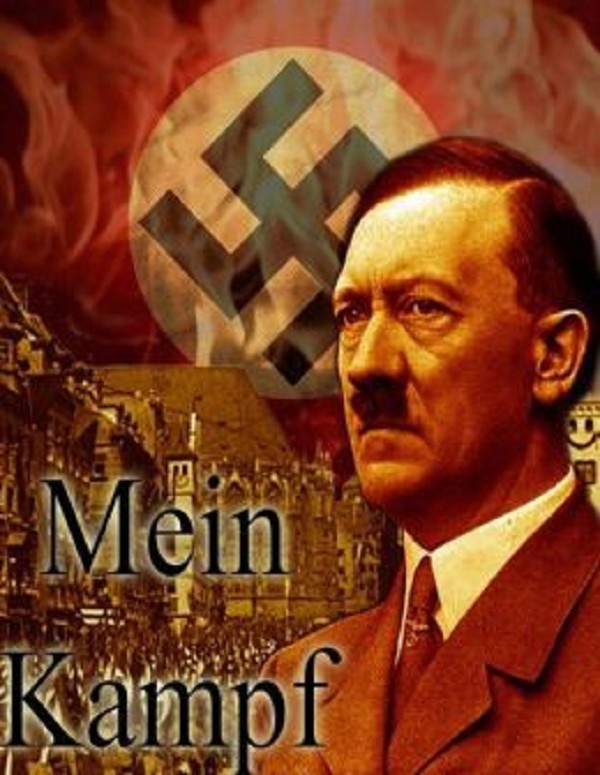| Home | Sports | Community | Arts/Theater | Business | Economy - Local | The Scene |
| History | Health/Fitness | Contests | ||||
WHY NO WWII GAS? Issue Raised in Book "G-34 Paradox' Discussed by Vets
September 2, 2014
Leave a Comment
|
||||||||||
| Printer Friendly Story View |

Why Adolf Hitler did not use poison gas in World War II
Perhaps the most puzzling issue raised in the recent book "The G-34 Paradox: Inside the Army's Secret Mustard Gas Project at Dow Chemical in World War I" is the reason why Adolf Hitler did not use poison gas in World War II.
The author asserts: "The facts are that Hitler suppressed attempts by his generals to use mustard gas in World War II."
An online discussion thread on HistoryNet.com featuring comments by veterans explores that question as well as the ludicrous idea among U.S. military and civilian leaders that "gas is more humane than explosives."
"I think Hitler was haunted by his WW I experiences," writes one veteran. "His decisions in France and the SU (Soviet Union) reflect him waiting for the proverbial 'other shoe' to drop. On both theaters, he seemed terrified of a 1914 'Miracle on the Marne'.
(Note: The "Miracle" occurred when six French field armies and the British Expeditionary Force ("BEF") along the Marne River forced the German Imperial Army to abandon its drive toward Paris and retreat to the north-east in the "Race to the Sea".)
"Also, Hitler had been exposed to gas at the front, and in fact had been a gas casualty. As a combat vet myself, I can tell you that chemicals have their own special brand of horror in the imaginations of most soldiers -- more so than explosives or bullets."
"Not only was he a gas victim himself, but he received notice through Switzerland that any use of gas by the Luftwaffe would result in unrestricted usage by the Allies," states another vet.
Of course Hitler had no compunction about using poison gas, the infamous ZyklonB, on helpless civilians in the death camps, perpetrating one of the worst genocides in history.
The book, published earlier this year by Historical Press L.L.C., notes that leaders of the U.S. Chemical Warfare Service, as well as civilian policy shapers like Dr. James B. Conant, later president of Harvard, agreed with the infamous German scientist Fritz Haber that gas warfare was "more humane."
Another veteran responds:
"I think that there was also a deeply personal reason behind Hitler's non-use of chemicals in WW II. He didn't mind facing bombs, etc. He never wanted to face chemicals again, and you bet that's what would have happened if chemicals had been introduced. An Allied military that conducted the Dresden firebombing, would more than likely have had no compunctions against using chemicals on cities, especially if the Germans had used Chemicals against Allied civilian areas first."
The book concludes that Hitler's non-use of gas in World War II was presaged by a statement in his 1925 book "Mein Kampf" (My Struggle): "These tactics are based on an accurate estimation of human weakness and must lead to success, with almost mathematical certainty, unless the other side also learns to fight poison gas with poison gas. The weaker natures must be told that here it is a case of to be or not to be."
Another comment on HistoryNet.com indicates that Gen. Billy Mitchell, an Army Air Corps leader, pushed for use of poison gas: "It wasn't outside American thinking to respond with a couple of gas bombs. In fact that is what Billy Mitchell argued should be done in order to fight wars more humanely. In Mitchell's mind a couple of gas bombs over a city could disable the city and thus disrupt the war effort of an opposing country."
Thus the twisted thinking of World War I contending gas warfare was "more humane" had carried over into World War II, apparently at least in the case of Gen. Mitchell.
But it seems clear that Hitler feared massive gas retaliation by the Allies if he used the most terrible weapon of World War I in World War II.
(The World War I mustard gas book is available at the Bay County Historical Museum and from the author at dlaurencerogers@gmail.com. Price is $19.95 plus $2.50 shipping & handling. Mein Kampf is sold by Barnes& Noble as a Nookbook.)
### ###
| Printer Friendly Story View |
|
|

Dave Rogers |
|
|
|
Printer-Friendly Story View
0200 Nd: 04-12-2024 d 4 cpr 1
12/31/2020 P3v3-0200-Ad.cfm
SPONSORED LINKS
12/31/2020 drop ads P3v3-0200-Ad.cfm


